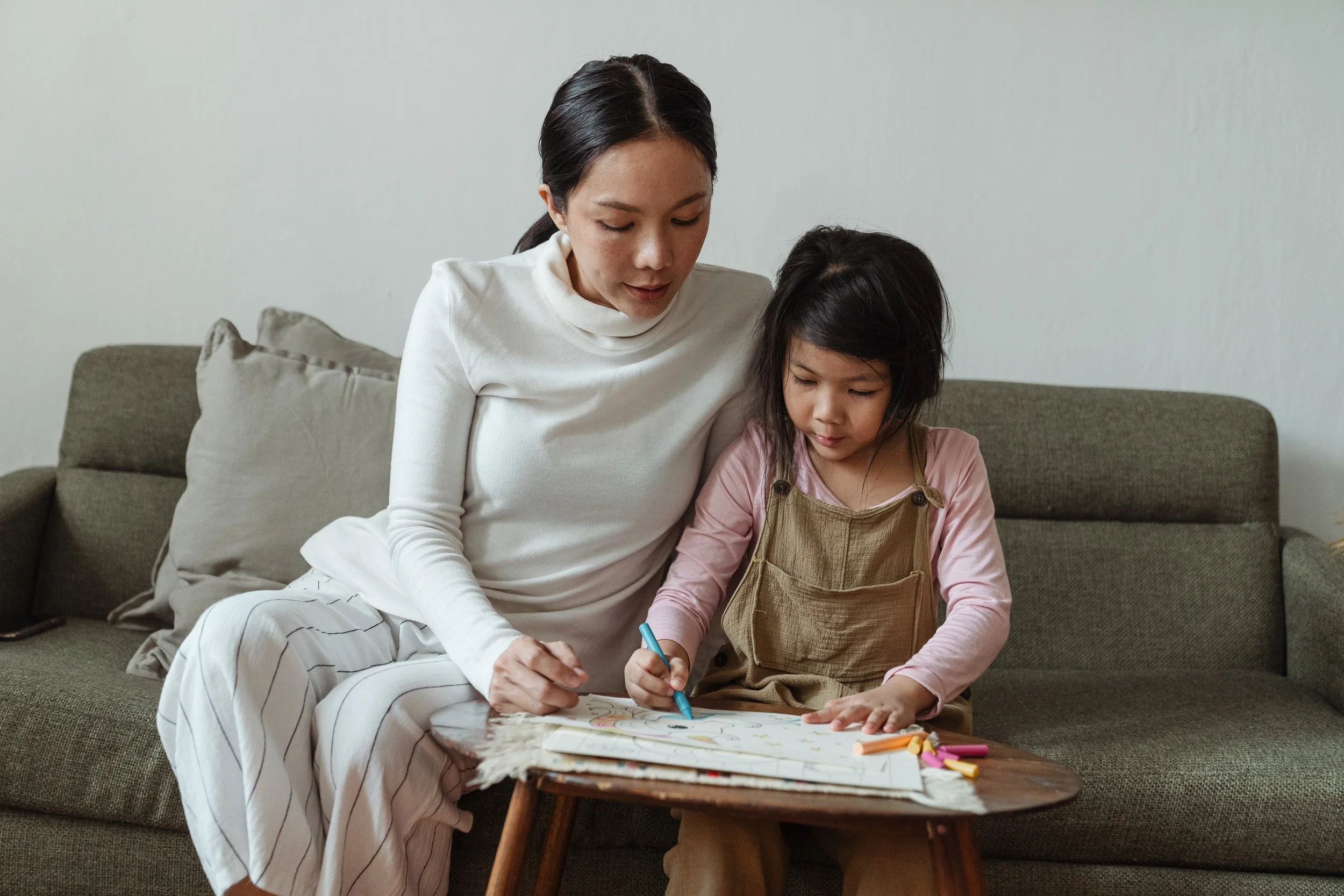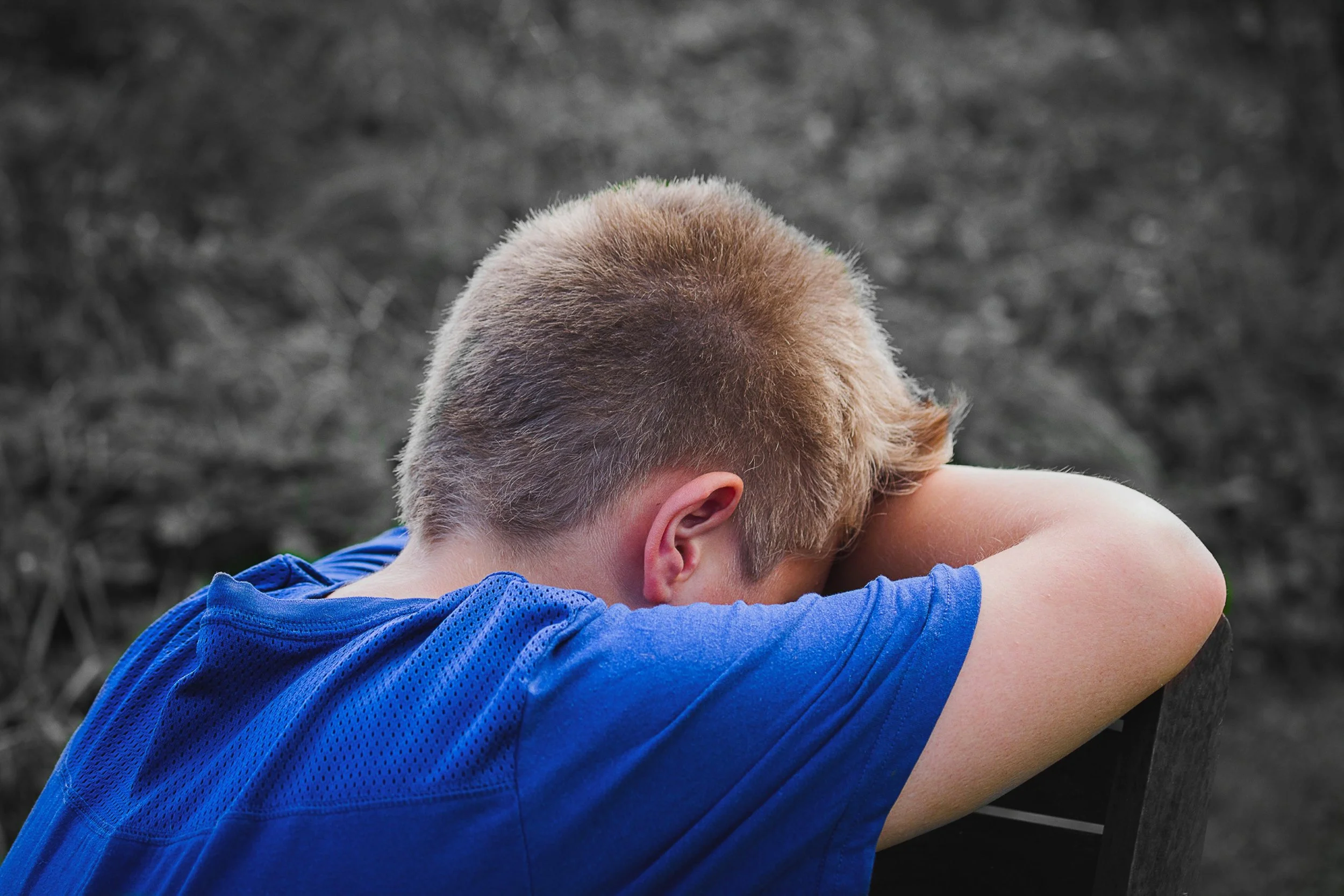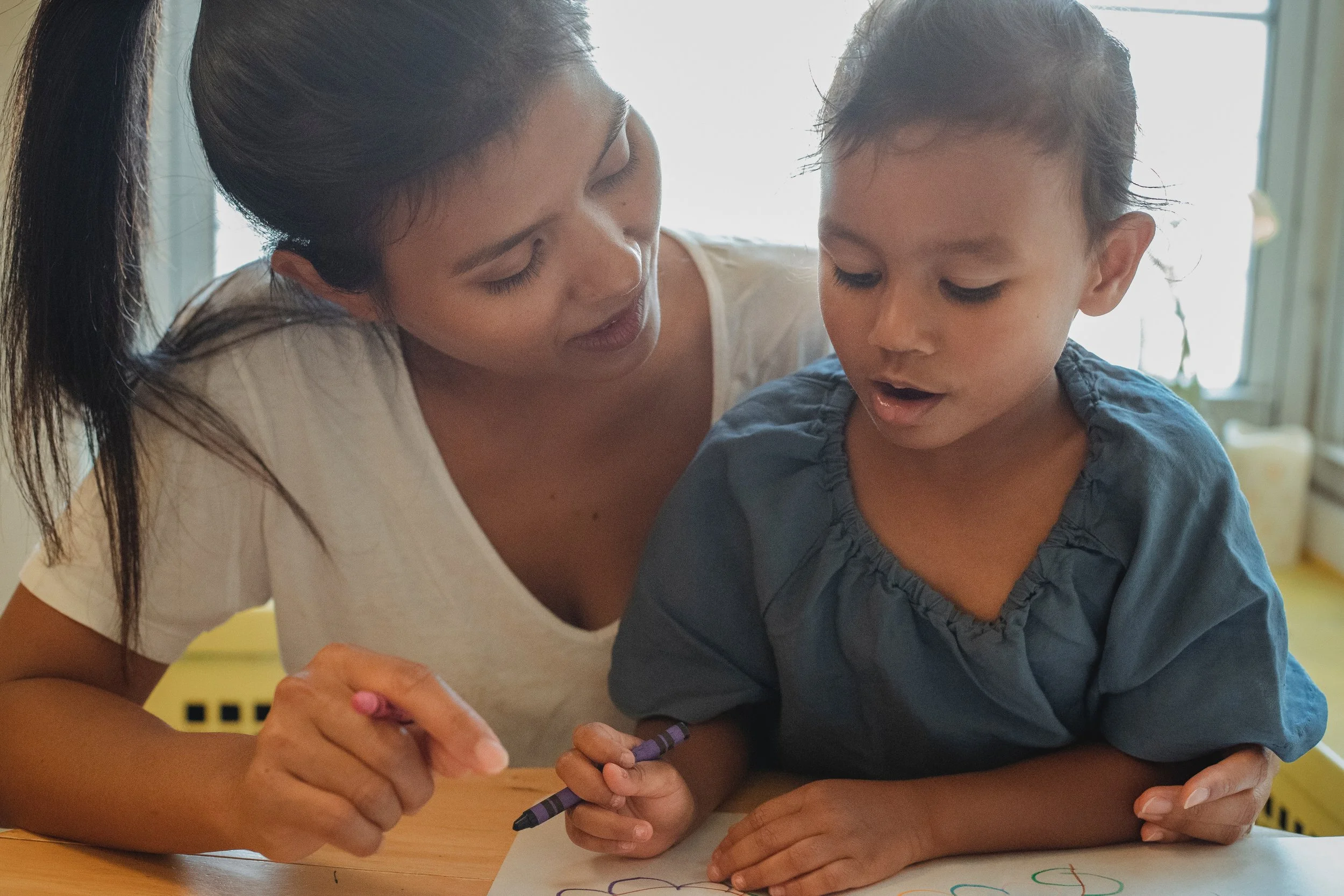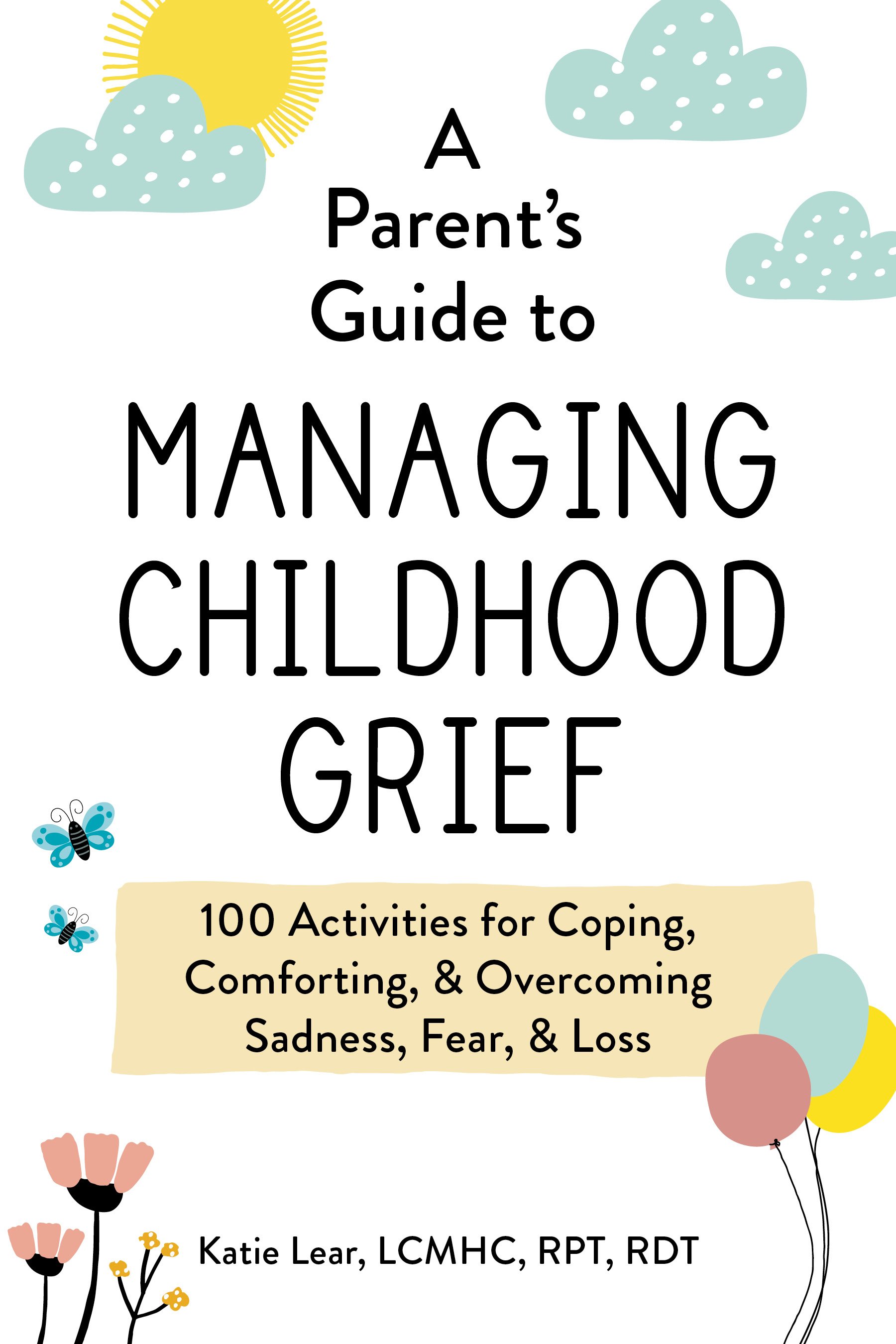While we may think of death as a grown-up topic, the truth is that many children will be touched by grief and loss at an early age. By the time they turn 18, roughly 5.8 million children will experience the death of a parent or sibling. The number of children grieving any kind of loss, including the death of a close friend or extended family member, is much higher: 1 in 3.
Some children benefit from having a person to talk to about their grief who isn’t a family member or friend. Counseling can help children to process their feelings, and make it less likely that they’ll struggle with their emotions later in life. Some forms of therapy are a more natural fit for grief counseling than others, and finding a child therapist who is experienced with grief can make a world of difference.
Do All Grieving Children Need Counseling?
If your child is reluctant to go to therapy, there’s no need to push. While grief therapy can be very helpful, it may not be necessary for every child. Grief is painful and difficult, but it’s also a natural process and the result of the close bond your child formed with their loved one. Research shows that many kids are able to adjust and cope with their loss on their own, with fewer lasting difficulties as they grow. These children might appreciate having a listening ear to talk to, but may not want or need it.
Other children have a harder time dealing with their intense feelings of grief. They may feel “stuck” in their grieving for a long time, or their emotions might be so overwhelming that they interfere with school, family, or friends. A child’s temperament, age, gender, support system, and trauma history can all influence the way they grieve. The way that a loved one died can also have a big impact.
If these more vulnerable kids don’t get help to move through their grief, their unresolved feelings put them at risk for problems later in life. These children may struggle with tantrums, problems with school or peers, and increased anxiety or depression. As adults, they may be more likely to develop mental health problems or unhealthy ways of coping with feelings.
When to Look for Help for Your Child
How can you tell if your child is coping well, or if they will need counseling to get through their grief? Your child’s feelings and behavior, as well as the circumstances surrounding their loved one’s death, can guide your decision-making.
If any of the following are true for your child, they may be more likely to need a grief counselor:
Your child did not have many opportunities to mourn, such by attending a funeral or memorial service
Your child struggled with anxiety, depression, or low self-esteem before the death
Your child has a history of other traumas or losses
Some types of losses also make it harder to grieve, such as:
The loss of a parent
A death that was sudden, unexpected, or violent
A death that happened when your child was very young (under age 8)
Regardless of the circumstances, if your child is showing signs of ongoing anxiety, depression, or anger following the death, they might benefit from therapy. Some of these signs include:
Feeling guilty or believing they did something to cause their loved one’s death
Avoiding talking about the death or doing things that could trigger memories of their loved one
Feelings of hopelessness
Intense feelings that get in the way of daily life
A lack of interest in doing things, or big changes in behavior that continue after the initial wave of grief has passed
Nightmares or trouble sleeping
Any mention of self-harm or a wish to die: this should always be taken seriously
Sometimes, a child who is seemingly doing just fine will ask to go to therapy. It’s possible for kids to be grieving deeply on the inside but not show it on the outside. If at all possible, find a way to set your child up with a counselor for at least a few sessions to get some support and see if ongoing therapy would be a good fit.
What Types of Therapy Can Help Grieving Kids?
If you’ve decided to pursue counseling for your child, you’re faced with a ton of options. Should you look for individual therapy or a group? Does your child need a therapist, psychologist, or psychiatrist? Let’s take a look at a few options for therapy that are a good fit for grieving kids. We’ll talk about how they work and why they can help with grief. We’ll also discuss what situations these types of therapy tend to work best for.
Play Therapy: Sitting on a couch and talking about feelings works well for older kids and adults, but it’s not always the most natural thing for young children to do. If you’re seeking therapy for a child under the age of 10, I strongly recommend finding a counselor who uses play therapy in their sessions.
Children use play to learn and make sense of the world around them. It’s why we see children repeating the same situations in play over and over until they master that concept and move on. Creative play and make-believe can help children sort through their confusion and strong feelings about death. It gives young children an opportunity to express big emotions and ideas that might be too complex to put into words.
A skilled play therapist can guide this process for children and keep an eye out for signs of trauma, self-blame, or big misunderstandings about death that could be causing additional pain. Look for somebody who describes themselves as a Registered Play Therapist to find someone highly trained in this type of work.
Trauma-Focused Cognitive Behavioral Therapy: Grief is shocking and stressful for everybody, but some children may experience their loss as a traumatic event. This is especially true if a child has lost a parent, or if their loved one’s death was very sudden or due to a violent act. Children who go through these kinds of losses may experience traumatic grief, which includes symptoms of PTSD.
Children suffering from traumatic grief might struggle with frequent nightmares, or deal with unwanted memories or images of their loved one’s death that pop up during the day. Sometimes, it might even feel like they’re living through that moment in time all over again, which is called a flashback. Traumatic grief feelings are so strong that children may avoid doing anything that they associate with their loved one or the death, so they don’t have to think about it.
These children need therapy that helps them deal with both their trauma and their grief, so they can think about their loved one without getting overwhelmed or avoiding things they used to enjoy. Trauma-Focused Cognitive Behavioral Therapy, or TF-CBT, was designed to help children learn the skills they need to manage strong feelings and gradually tell the story of what happened to them. Kids get a lot of support from their therapist and caregivers along the way.
Group Therapy and Support Groups: Many bereaved children feel isolated. Even though grief is a common experience, it’s likely they don’t have any friends who have gone through a similar loss. Peers may not know what to say to a grieving child, or how to help. Young grievers may avoid talking to their friends about what has happened for fear of upsetting them or appearing vulnerable.
It’s also common for grieving children to worry about whether or not their grief is “normal.” Grief can bring up all kinds of feelings and reactions, some of which are confusing or even contradict each other. Reading stories about grief can help children realize that these complicated emotions are normal and okay. Talking to another grieving child, however, can be even more validating.
Being around other kids who “get it” can help grieving children in a way that individual therapy can’t. Instead of learning about grief from an adult, children can hear directly from other peers about how loss has touched their lives. Children can share their stories and struggles in a safe environment where they know everyone else will understand what they are going through.
Therapy groups are led by a licensed mental health professional, while support groups usually are not. Both types can have a lot to offer grieving children. You can find a therapy or support group near you by entering your zip code into this tool from The Dougy Center.
What Do Children Do in Grief Therapy?
If you’re considering grief counseling for your child, you may be curious about what exactly happens in the therapy room. Your child might be curious, too! Every therapist is different, but here are some general ideas of activities your child’s therapist might introduce to help your child learn about and express their grief:
Read books or play games to learn age-appropriate facts about death and grieving.
Use art or pretend play to explore feelings of grief without having to talk about them directly.
Draw pictures, write poetry, or use other forms of art to express feelings and memories.
Create rituals to honor and remember your loved one’s life.
Write a letter to your child’s loved one to express things that were left unsaid.
Learn coping skills to manage the strong feelings of anger, sadness, and other feelings that sometimes come along with grief.
A grief therapist will never push your child to talk about things before they feel ready. While they may make suggestions, your child gets to choose the pace. It’s always okay for your child to say they aren’t ready to share.
Help Your Child While You Look for a Grief Counselor
Once you’ve decided to find a grief counselor, it may take a while before you book your first appointment. Not all children’s therapists specialize in grief, or work with every age range. The demand for children’s therapy is high in many places, which means you might need to time on a waiting list or search longer to find someone who has availability.
While you wait for your first appointment, you can help your child begin to cope with their grief at home. As a parent or caregiver, your support will be one of the most helpful resources a grieving child can have. My book, A Parent’s Guide to Managing Childhood Grief, was created to help parents and other caring adults guide children through the difficult, complex feelings that come with loss.
This book is filled with simple, easy-to-follow activities that tackle big ideas like finding meaning and imagining a hopeful future after loss. You’ll find over 100 ideas for how to use creative play, books, and games to start gentle conversations about death, express difficult emotions, and strengthen family bonds after loss.
While not a substitute for therapy, these activities are inspired by my own work as a child therapist, and borrow ideas from cognitive behavioral therapy and other approaches often used with grieving kids. The book is available for presale on Amazon, as well as other major bookstores near you.
To find a grief counselor near you, check out The Dougy Center or the National Alliance on Children’s Grief. Both have directories to help you find local children’s therapists or support groups. If you live in New York, North Carolina, or Florida and would like to learn more about counseling with me, you can contact me here.




